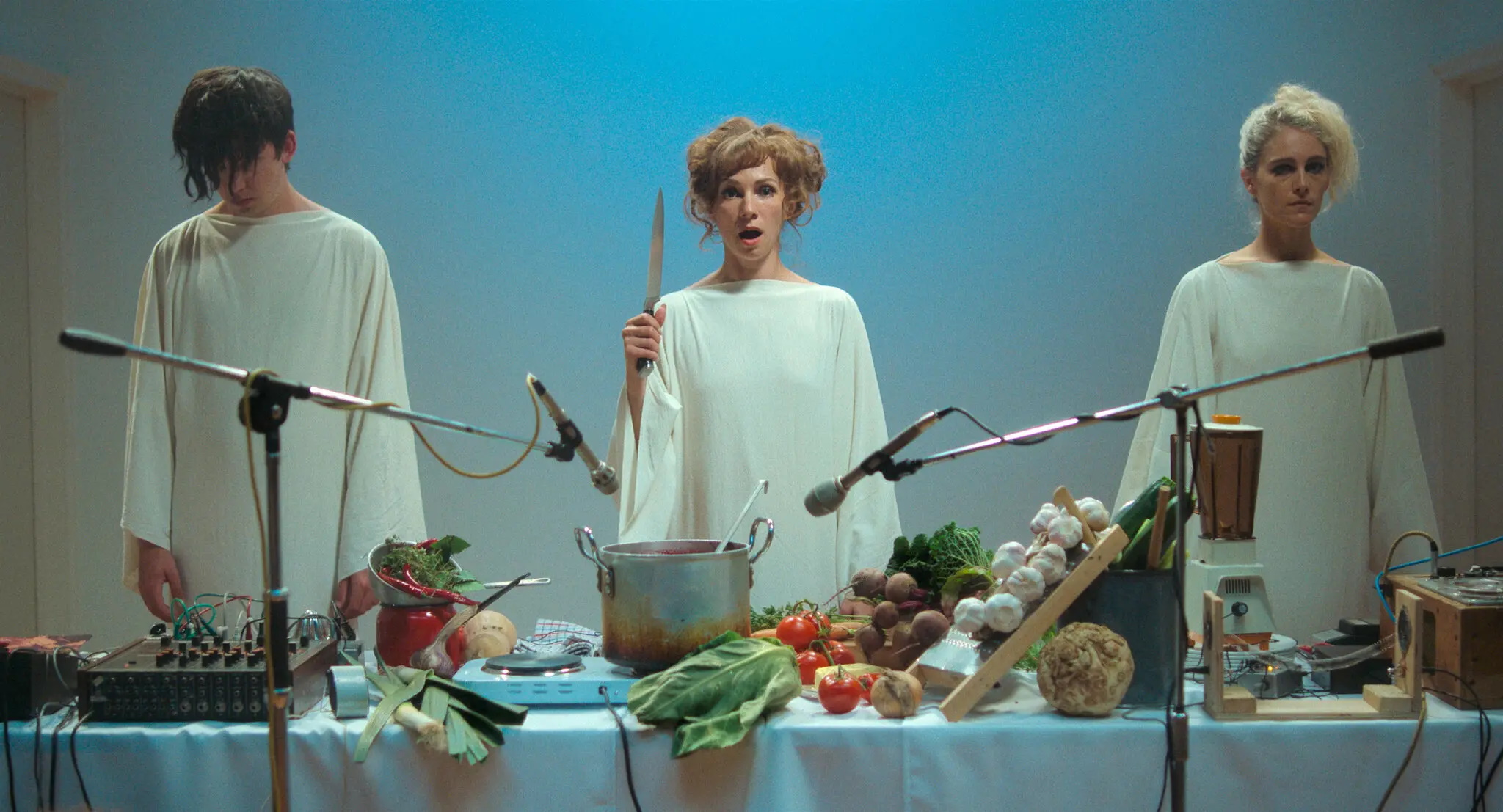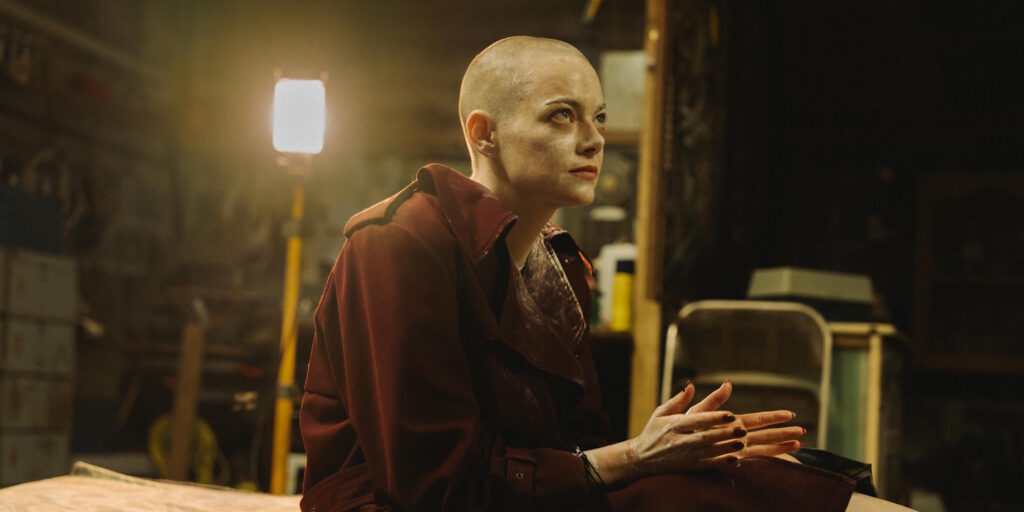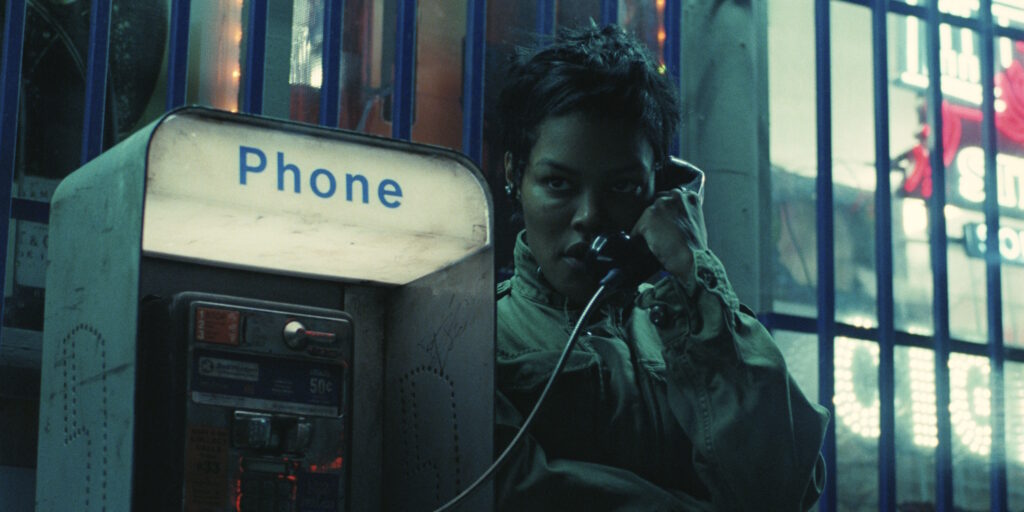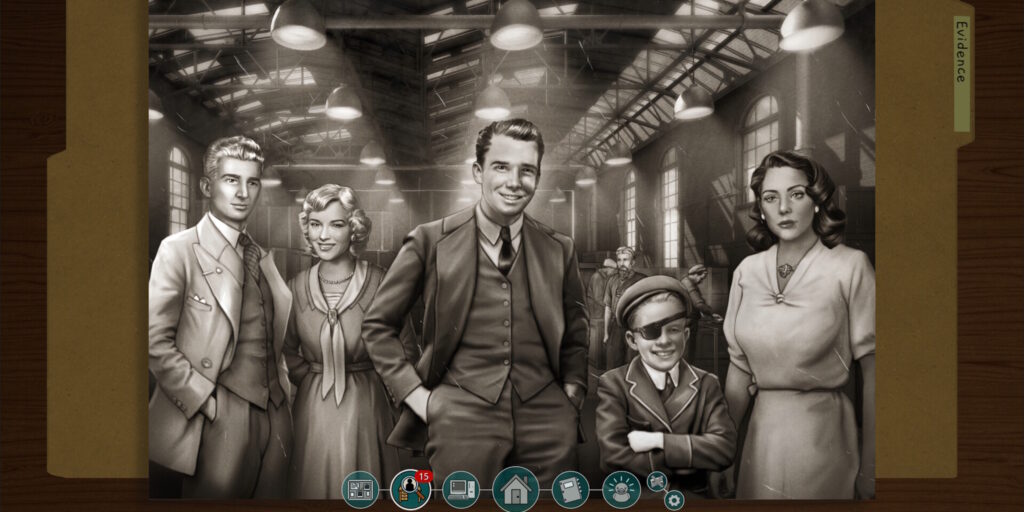[Originally published at Cinema St. Louis’ The Lens.]
British director Peter Strickland (Berberian Sound Studio, The Duke of Burgundy) has long dabbled in the absurd, but his latest film, the po-faced gastronomic farce Flux Gourmet, is the closest he’s ever come to making an outright comedy. Granted, it’s a comedy in the same sense that Barton Fink (1991) is a comedy: It rarely elicits a laugh, but much of it is very funny. A sanguine retro stylist who probably dreams in hyper-saturated 35mm, Strickland is enamored with the grotesque, both physical and psychological. Specifically, he’s fascinated with the way that obsessions of all kinds – from art to sex to conspicuous consumerism – deform the human mind, creating hilarity and horror in equal measure. Crucially, Strickland never betrays an aloof smugness about such preoccupations. He is as committed to his characters’ neuroses and fetishes as they are, although he also appreciates their inherent ridiculousness.
The ridiculous is on full display in Flux Gourmet, a mischievously languorous psychological thriller-cum-black comedy about the avant-garde art world. Unabashedly besotted with the Spanish and Italian genre cinema of the 1970s and ’80s, most of Strickland’s works are set in a somewhat heightened reality. (And that includes the circular London stage in Strickland and Nick Fenton’s 2014 concert film, Björk: Biophilia Live.) Flux Gourmet takes this offness to another level, unfolding in a parallel universe where “sonic catering” has become a major international art medium. Combining culinary, audio, and performance art into a startling medley of textures and sounds, this form is apparently regarded as both prestigious and fashionable. Like all movements, sonic catering has its own celebrities, rivalries, and patrons – the latter eager to support artists financially and thereby bask in a bit of their reflected chic.
Such is the case with the prestigious British sonic-catering institute that serves as the setting for Strickland’s feature. This conservatory is housed in a musty mansion that reeks of old money, even if it has been partly renovated to create austere culinary performance spaces. The institute offers highly selective month-long residencies to artists who are deemed worthy by its overbearing peacock of a director, Jan Stevens (Gwendoline Christie, having a grand time). The newest beneficiaries of her largesse comprise a nameless collective: Elle (Fatma Mohamed), Lamina (Ariane), and Billy (Asa Butterfield). Elle is the face of this trio, the artiste who lacks technical expertise but (allegedly) provides all the animating vision. Lamina and Billy are the journeymen, the engineers who wrangle microphones, foodstuffs, sound mixers, and kitchen appliances to execute Elle’s grand ideas. As with most synergistic art forms, the tension between the self-appointed genius and their resentful collaborators is uncomfortably palpable.
Flux Gourmet observes the vicious and increasingly bizarre conflicts that arise during the trio’s residency from a slight remove. A struggling Greek writer named Stones (Makis Papadimitriou) has been hired to document everything and ultimately author a kind of exhibition catalog. It is he who narrates the film, providing an appreciative if slightly perplexed outsider’s perspective from within this rarified artistic bubble. Unfortunately, he is distracted from his duties by an embarrassing personal problem: a sudden ailment characterized by severe abdominal pain and uncontrollable flatulence. He pays repeated, fruitless visits to the institute’s in-house physician, Dr. Glock (Richard Bremmer), a preening gargoyle who delights in showing off his classical education and violating patient privacy. He offers Stones neither a conclusive diagnosis nor any physical relief, obliging the agonized writer to organize his activities around surreptitious fart breaks. (The fact that Lamina seems to take a sincere shine to him only heightens his gastrointestinal misery.)
The story’s four-week timeline and hermetically sealed setting provide Strickland with a crisp structural framework. The characters’ daily and weekly routines allow him to repeat scenes or shots with slight (or substantial) variations: awkward dinners with the institute donors, improv exercises about grocery shopping, and the collective’s bizarre, go-for-broke performance pieces. Strickland returns repeatedly to an amusing shot of the artists rising in unison each morning from their cramped, parallel beds, like a trio of Eurotrash fairy-tale bears. (Which would make Stones the interloping Goldilocks, one supposes.) This iterative quality lends Flux Gourmet the satisfying structure and escalating sensibility of a well-told joke. Every time Jan Stevens pulls Elle aside and insistently offers the same damn note about a particular audio effect, it gets more uncomfortable, more deranged, and, yes, much funnier.
It’s worth noting that the characters regard the art of sonic catering with the utmost seriousness, and Strickland himself never cracks a proverbial grin about these ludicrous, decadent, self-involved people. Flux Gourmet isn’t truly a satire of the contemporary art world in the manner of Ruben Östlund’s The Square (2017). The fictional conceit of sonic catering as a kind of rock-star art form gives the story a fable-like remove. As the outsider, Stones is well positioned to deflate the other characters’ pretensions, but he is too self-loathing and too preoccupied with his own gassy suffering. Indeed, he betrays a hint of envy for all the creative, beautiful, unselfconscious people around him. Other than his own bowels, nothing discomfits him quite like the institute’s tradition of post-performance backstage orgies – glimpsed in impressionistic flashes and treated as a perfunctory ritual on par with a wine-and-cheese reception.
As in most of his work, Strickland strikes a nimble balance between mesmerized ecstasy and deadpan mockery. At times, he even betrays admiration for his characters’ passions. When Elle refuses to compromise her integrity by kowtowing to Jan’s suggestions, she sounds like a typically egocentric artist, but her defiance also carries a fiery glint of principle. Notwithstanding sonic catering’s façade of punk provocation, the world depicted in Flux Gourmet has its own rules, and the characters unfailingly get into trouble when they violate those precepts. Jan shamelessly exploits her position to lure Billy into her bed, Billy sneaks salami slices in violation of Elle’s vegetarian policies, and Elle is shamed as a phony when one of her more shocking performances is exposed as a bit of stage illusion. Strickland presents such transgressions as comically pathetic, but also as inexplicably tangled with the sensuality and obsession that are arguably necessary to create great art.
The filmmaker certainly knows something about sensual obsession. The features that followed his 2009 debut, Katalin Varga – a solid rape-revenge thriller, but a stylistic outlier in retrospect – all betray Strickland’s fascination with giallo and adjacent European thriller, horror, and exploitation subgenres. One could easily play spot-the-influence with Flux Gourmet, picking out elements indebted directly or indirectly to prolific 20th-century filmmakers such as Mario Bava and Jesús Franco. (This writer, for one, sat up and pointed like an Easter egg-spotting Marvel fan when John Phillip Law’s iconic black catsuit from Bava’s Danger: Diabolik showed up.) Like all of Strickland’s work, however, Flux Gourmet is nothing so superficial as a fanboy’s pastiche. It’s a cheeky cinematic feast that builds on a foundation of robust traditions, while also boasting its own strange, distinctive flavors. Although some viewers will find it difficult to stomach all the film’s droll eccentricities, it’s certainly a meal to remember.
Flux Gourmet is now available to rent or purchase on major online platforms.




